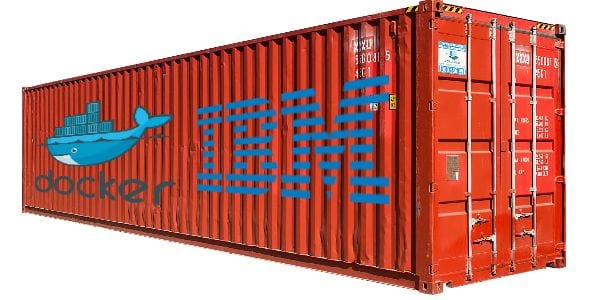DockerCon News: IBM Rolls Out Support for Containers in Bluemix

 DockerCon started in San Francisco yesterday, and with its start a rush of container-related news began.
DockerCon started in San Francisco yesterday, and with its start a rush of container-related news began.
One prominent piece of news that emerged was IBM’s announcement of ‘industry leading enterprise-class containers,’
In December 2014, IBM announced a “strategic partnership” with Docker, Inc., and launched a beta container service on its Bluemix Platform as a Service (PaaS) offering. Yesterday, that container service was made available for general use.
In an official release IBM summed up its motivation for adding a service for the massively popular linux-based Docker containers: “Containers give developers flexibility to build once and move applications without the need to rewrite or redeploy their code,” says the release. “IBM Containers, based on Docker and built on Bluemix… provide a more efficient environment that enables faster integration and access to analytics, big data and security services. Enterprises will now be able to use the combination of IBM, Docker and Cloud Foundry to create a new generation of portable distributed applications.”
That flexibility has made Docker an extremely popular option for developers in the last year, and for developers interested in Bluemix, this is big news. Bluemix, a once generic-feeling PaaS is becoming more diverse every month it seems and now is poised to take a leading stance in flexibility among PaaS offerings.
One key point of IBM’s container service is the level of integration available. IBM is the first company to sign on as a reseller of Docker’s on-premise Trusted Registry Software, and has integrated that software with its DevOps and cloud offerings such as IBM UrbanCode and IBM Pure Application Systems, according to the press release. “Through this relationship, IBM is again enabling containers for enterprise production workloads in hybrid cloud deployment.”
The word enterprise pops up a lot in IBM’s press release, and should be noted—though Docker has partnerships with other companies (Microsoft, VMware, and Red Hat), IBM has a reputation as a legacy vendor capable of pushing technologies across a wide range of markets.
Towards the end of the press release, IBM gives us a look at some of the potential use cases that the company sees for its container products: “Support of Docker-based containers is a high priority for enterprise clients who want to leverage containers with production applications. Containers have proved to be effective in a number of enterprises in industries such as financial services, hospitality, retail, healthcare, cloud service providers, and others.”
Widget not in any sidebars



















